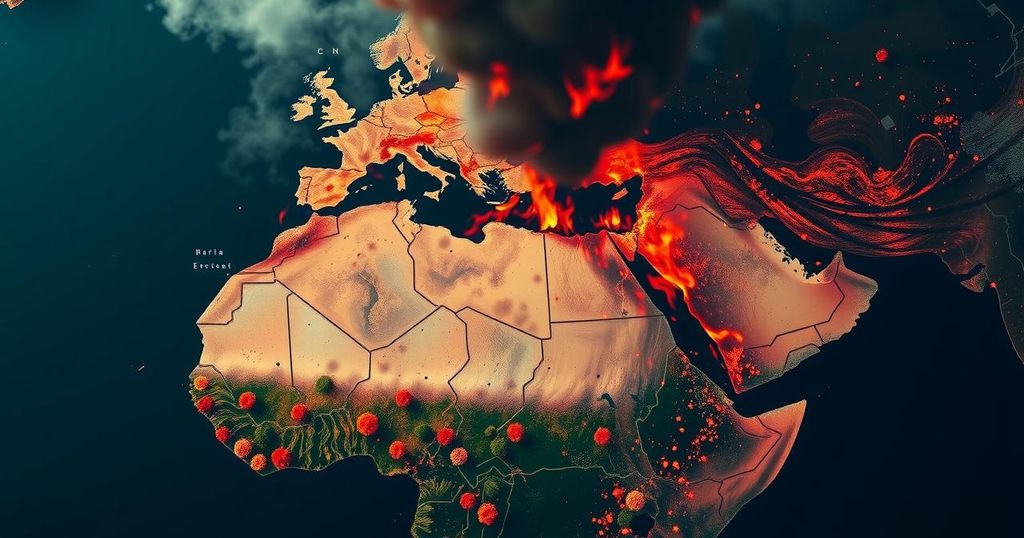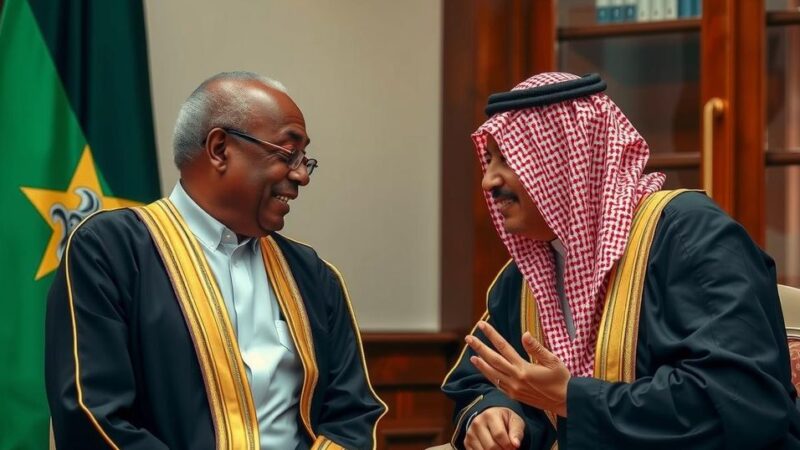In the Horn of Africa, rising tensions threaten to destabilize the region as Ethiopian Prime Minister Abiy Ahmed seeks a Red Sea outlet, prompting strained relations with neighboring states. The complexities of local and external influences risk renewed conflict, affecting not only the region but also global stability. Immediate U.S. intervention is crucial to de-escalate these tensions and prevent further humanitarian crises.
The Horn of Africa is once again witnessing escalating tensions, reminiscent of the situation in 2020 when conflict erupted in Ethiopia amid the U.S. presidential elections. The hostilities between the Ethiopian government and the Tigray region culminated in a devastating war that lasted for two years, profoundly affecting the stability of Ethiopia. Although a ceasefire was established in 2022, issues such as the repatriation of displaced individuals remain unresolved. Furthermore, the fragile coalition that Ethiopian Prime Minister Abiy Ahmed assembled is fracturing, leading to civil strife in the Amhara and Oromia regions. As the United States is engulfed in a politically charged electoral atmosphere, it risks neglecting the dangers of renewed conflict in the Horn of Africa. Prime Minister Abiy Ahmed’s push for a Red Sea outlet and his willingness to take significant risks have urged regional players to respond. His negotiations with Somaliland to secure sea access have strained Ethiopia’s relationship with Somalia, while Egypt, alarmed by potential threats from the Grand Ethiopian Renaissance Dam, is forging new alliances to counter Ethiopia’s ambitions. Notably, Egypt has recently supplied arms to Somalia, signaling a shift in regional dynamics. In addition to these internal challenges, external powers with vested interests in the Red Sea and the Gulf of Aden are also actively involved. Turkey has strengthened its ties with Somalia, while the United Arab Emirates maintains proximity to Abiy’s administration. The intricate array of relationships in a historically contentious landscape elevates the likelihood of miscalculation leading to conflict. Such a development would initially burden African populations but would subsequently disrupt global trade, particularly in crucial shipping routes, and escalate refugee crises in neighboring countries. The international community is already grappling with severe conflicts elsewhere, such as the ongoing humanitarian catastrophe in Sudan, which receives scant attention despite its dire situation. Moreover, Somalia’s instability continues to create openings for extremist groups like al-Shabaab, potentially linking them to Yemen’s Houthi rebels. Amid these challenges, it is imperative for the United States to engage in de-escalation efforts, discourage proxy conflicts, and avert further calamity.
The Horn of Africa, particularly Ethiopia, remains a hotspot for tensions that could escalate into broader conflicts. The region has experienced significant turmoil, particularly with the civil war in Tigray that began in late 2020 and has subsequently led to regional instability. Despite a ceasefire in 2022, unaddressed issues linger, alongside new challenges posed by the ambitions of neighboring states and external actors vying for influence. The United States’ focus on domestic politics during election years creates a risk of overlooking international conflicts, particularly in volatile areas like the Horn of Africa, which holds implications for both regional stability and global security.
In conclusion, the escalating tensions in the Horn of Africa, driven by the complex interplay of regional ambitions and external influences, necessitate urgent attention from the international community. The United States must prioritize peacebuilding efforts and mitigate risks of proxy conflicts, as the ramifications of unrest will extend beyond local borders, potentially impacting global economic stability and humanitarian situations.
Original Source: www.cfr.org






